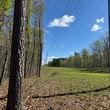“Get upclose and personal with snakes, you’re asking for trouble,” Robert Geller, medical director of Georgia Poison Center, once told Channel 2 Action News.
Geller was talking about being bitten, but there’s another kind of trouble you could get in — trouble with the law.
Snake season in Georgia begins in late March or early April. And when this cold spell passes and temperatures rise, you’re likely to see more slithering serpents in your yard or at parks.
Before you react to seeing a snake, however, remember that in Georgia it is illegal to kill a nonvenomous snake (O.C.G.A. 27-1-28). The misdemeanor offense is punishable by up to a year in jail and a $1,000 fine.
Of the 46 species of snakes known in Georgia, only six are venomous: copperhead, cottonmouth, Eastern diamondback rattlesnake, timber/canebrake rattlesnake, pigmy rattlesnake and Eastern coral snake. So your chances of coming across a nonvenomous one are pretty good.
But it isn’t just killing the creatures that is illegal. If your kid comes home with a slithering friend and asks, “Can I keep it?” you have to say, “No.” It is also illegal in Georgia to keep a nonvenomous snake — corn snakes, garter snakes and the like — as a pet.
State law does allow you to keep a native venomous snake, however.
According to the Georgia Department of Natural Resources: "Georgia Law allows the taking of certain native species — namely rats, mice, armadillos, coyotes, groundhogs, beaver, freshwater turtles, venomous snakes, frogs, spring lizards, fiddler crabs, freshwater crayfish, freshwater mussels, and nutria — because of their status as a nuisance or other reason."
Keeping live armadillos, coyotes, groundhogs and beaver require the proper permits or licenses, however.
But if you can’t kill a snake in your yard, what should you do?
“The best thing to do is to get a water hose. Snakes don’t like trauma, so if you get a cold water hose and you just spray them really hard, they’re going to head the other direction,” Trish Hobbs, coordinator at Reed Creek Park, told WRDW.com.
About the Author






